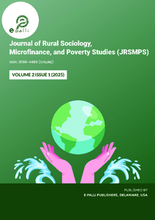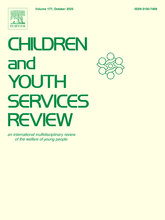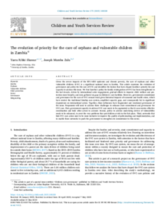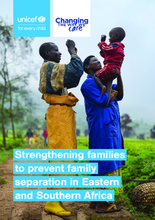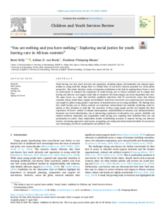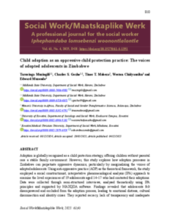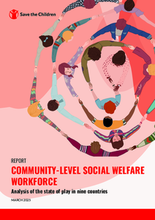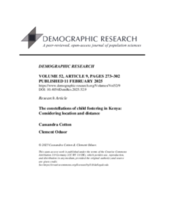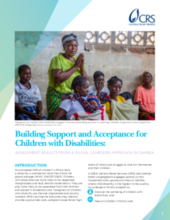Displaying 11 - 20 of 665
This study examines the challenges African governments face in integrating orphaned and vulnerable children into orphanages and home-based care facilities, with a focus on Zambia. Findings reveal major barriers including insufficient funding, unregistered orphanages, poor coordination with NGOs, cultural factors, and the attitudes of the children themselves.
This special issue of the Children and Youth Services Review concerns the governance of children's care systems in low and middle-income countries, with a focus on Cambodia, Uganda and Zambia. The special issue focuses on the political and bureaucratic factors that shape priority for and the effectiveness of national children's care systems in low and middle-income countries.
Given the severe impacts of the HIV/AIDS epidemic and chronic poverty, the care of orphans and other vulnerable children (OVC) is a significant national issue in Zambia. This article examines the evolution of governance and policy for the care of OVC and identifies the factors that have shaped Zambia’s priority for and capacity to address this issue.
Interviews with care leavers and instructors in Zimbabwe found that institutional life skills programs strengthen resilience, self-reliance, and adaptability, helping youth navigate challenges after leaving care. However, outdated curricula, limited follow-up support, and restricted financial access constrain agency and economic participation, highlighting the need for more relevant training and structured transitional support.
This paper explores strategies to prevent the separation of children from their families, drawing on evidence from Eastern and Southern Africa. It highlights the importance of strong care systems, holistic family support, and coordinated services to keep children safely within their families and communities.
This article uses Nancy Fraser’s social justice framework to examine the experiences of youth leaving care in Ghana, South Africa, Uganda, and Zimbabwe, drawing on interviews with 45 care-leavers conducted by peer researchers. Findings reveal how intersecting injustices—such as stigma, exclusion, and lack of resources—undermine their transition to adulthood, underscoring the need for stronger aftercare services, recognition of diverse identities, and greater youth participation in shaping policy and support.
Adoption in Zimbabwe, while intended to provide stable families for children without parental care, often marginalizes adopted adolescents by excluding them from decisions, limiting transparency, and severing cultural ties. This study highlights the emotional distress and identity challenges this creates and calls for more inclusive, transparent, and culturally grounded adoption practices that uphold children’s rights and voices.
This report, based on a study across nine countries, examines how to strengthen the community-level social welfare workforce (CLSWW) as a vital but under-resourced part of national child protection systems. It calls for context-specific strategies that clearly define roles and competencies, build capacity, and align with local norms, mechanisms, and resources to enhance child protection outcomes.
This study examined the geographical location of fostered children in Kenya, identified who provides their care and the nature of mothers’ relationships with these caregivers, explored transitions and mobility within kin networks, and analyzed how location and distance influence maternal–child contact.
This report highlights the Inclusive Family Strengthening (IFS) project by Catholic Relief Services (CRS) and Catholic Sister congregations. This project aimed to improve the wellbeing of children with disabilities and keep them in family care.

